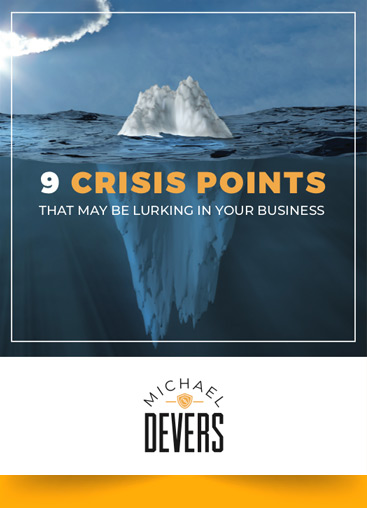The Good, the Bad, and the Ugly from Installment four of the story
Bradley Cooper and Lady Gaga’s much talked about take on the classic Hollywood tale, A Star Is Born, lured my wife and I to the theater on Sunday evening. We both enjoyed the movie and plan to buy the disc when it arrives in stores later this year.
Along with the entertainment value, I extracted a few lessons – good, bad, and ugly – from the film as well. Spoilers ahead. You’ve been warned.
The Good: “Say something true.”
Bradley Cooper’s character, Jackson Maine, repeats this message in different forms to Lady Gaga’s Ally at critical points throughout the movie. I’ve noticed a few reviewers have referred to the message as trite, which to me falls somewhere between cynical and hypocritical. These same reviewers have lauded others for capturing the truth in other movies. Maybe they want truth to be captured, but not discussed. I’ll bet it’s a union thing.
From my perspective, the message is relevant and timely. Click-bait abounds on the internet now more than ever, and the majority of internet gurus advise you, “give in,” in order to attract readers to your website. Why bother with truth, they argue, when you attract more eyeballs by creating click bait like this:
“11 reasons to lie during a job interview. And #4 will shock you.”
“Would a BDSM Sex Robot Violate Asimov’s First Law of Robotics?”
“You won’t believe these 23 real Wal-Mart photos. #8 will leave you gasping for air.”
The way in which one builds an audience means more than merely building an audience. That may come off as a high-horse statement to some, but history proves it to be accurate. Audiences built on a foundation of click-bait eventually slide into the ocean.
The movie, both the content itself as well as Cooper’s passionate making of it, reminded me of how important it is to remain true to yourself, say what you really have to say, and let the rest of it unfold naturally. You don’t have any control over what happens once you release your art or your message into the world. You only have control over what you decide to produce and set loose.
The Bad: While deep in the throes of my own musician days (lead guitarist in an 80’s hair band), my best friend Scott and I shared a running joke. We would earnestly describe some elaborate, bizarre, and unlikely scenario that always ended with the punchline, “…and then Axl Rose and Slash discover us and take us under their wing and we’ll be famous.” Even back then we knew it was only a playful fantasy and we never took it seriously.
This same model sits at the core of A Star Is Born. Here is exactly how I would have sold the story to Scott (substituting Jackson for Axl & Slash).
“For some crazy reason, we decide to do a one-song set. Naturally, we play our signature song, which is a cover tune. At the same time, there’s this guy who’s riding around in an SUV after his own show. He runs out of gin and his driver doesn’t know New York City despite being a paid driver in NYC, so the guy tells him to just take a right and pull over at the first bar he sees. He goes in and sits down and orders a drink and that’s when we play our one-song set and the guy is Jackson Maine and he discovers us and takes us under his wing and makes us famous.”
This is sheer fantasy. Outside of a Hollywood film, there isn’t anyone who is going to pluck you from obscurity, take you under their wing, and make you a star.
Late in the film, Sam Elliot, who portrays Bobby, the (much) older brother of Jackson Maine, consoles Ally following Jackson’s death. He reminds her that it’s not her fault, but Jackson’s. In fact, all of Jackson’s issues and problems are Jackson’s fault and Jackson’s alone.
There’s another side to that same philosophical coin.
Though you will undoubtedly need help along the way, your success is yours to create and yours alone. No one sits at the Schwab’s drugstore counter, sucks down a phosphate, and waits to be discovered any more. You have to make it happen. No one else is coming to the rescue. Remember the good part of this story from earlier and find your truth, then fight, claw, and scratch your own way to the top.
The Ugly: No one likes to be called ugly.
It can be easy, especially when we feel angry and frustrated, to say something we don’t believe or truly feel. We do this to make ourselves feel better and to make the other person feel something as well. It allows us to control the moment, and not much longer than that. When it’s over we can apologize, but it’s impossible to unsay something.
After Ally performs a song Jackson believes to be a “sell-out” to a national audience on “Saturday Night Live”, he confronts her about it. The discussion escalates to a full-throated battle. At its peak, Jackson tells Ally she’s ugly. Not once, but twice. The hurt on Ally’s face is palpable. Probably due to the fact that the hurt on Lady Gaga’s face was authentic and deep. Bradley Cooper improvised the line in the moment. And he knew what he was doing. He had spent hours upon hours interviewing Gaga and built the character around her extensively, and the movie around the character, telling Taffy Akner from the New York Times, “The world had to match her, because if the world’s not authentic, and then you have this authentic person in it, it’s going to, like, destroy the whole film.” He knew what the word “ugly” meant to Ally because he knew what that word meant to Gaga.
A few scenes later, Jackson mumbles his way through an apology to Ally, the character, and she forgives him. Back in the real world, reading through the pre-release publicity, it becomes clear that Lady Gaga, the actress, may have forgiven, but she hasn’t forgotten.
# # # # # #
I cannot, in good conscience, end this post without a link to the incredible NY Times profile of Bradley Cooper by Taffy Akner. It’s mentioned in 80% of the reviews of the movie. Just read it. All you got to do is trust me.




0 Comments